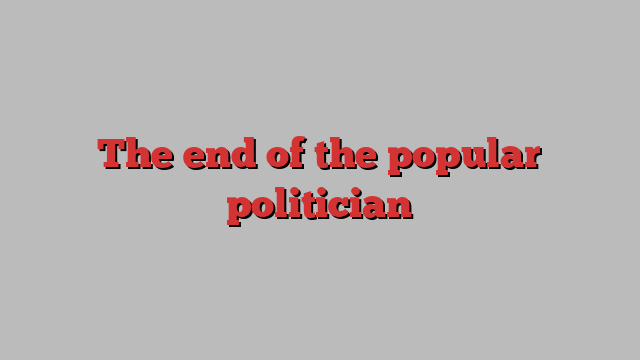
Stay informed with free updates
Simply sign up to the Politics myFT Digest — delivered directly to your inbox.
Last April, I wrote that Britain’s soon-to-be-elected Labour government would be disliked in “no time”. “No time” meant six months or thereabouts. Apologies for the naïveté.
Keir Starmer’s approval rating has dropped 45 percentage points in little over two months. His crime? Well, there has been a hint of financial sleaze, though on a scale so small as to bring home the relative innocence of British politics. A cut to pensioner perks, sensible on its own terms, looked bad next to a generous wage deal for NHS doctors. Here was a reminder that Labour, however moist-eyed it gets about miners and steel workers, is the political arm of the public sector middle class.
Still, none of this is gross misgovernment. Labour hasn’t had long enough to be terrible. The likelier explanation for so steep a fall is that voters were ready to deplore the new administration and took the first excuse.
If this seems a cynical analysis, look around the west: popular leaders are rare, and it would be some coincidence if it was their own incompetence at fault in each case. Olaf Scholz is set to become just the second one-term chancellor of Germany since the Federal Republic’s creation in 1949. President Emmanuel Macron has incurred the most vehement protests in France since 1968, twice. In a nation that used to have era-defining presidents, neither of his two predecessors made it past their first term. Australia has had seven changes of prime minister since 2007. It had four in the previous 32 years.
As for the US, the last five times a president has been at midterm — 2006, 2010, 2014, 2018, 2022 — their approval rating was 45 per cent or less. There hasn’t been a sustained run of incumbent unpopularity like that since polling began, even during the Vietnam war. Presidents used to win 400 electoral college votes almost as a matter of routine. No one has done it since 1988.
What are the chances that all of these leaders are rubbish? Or “out of touch”? They include individuals who have presided over sensational economic growth and those who have overseen stagnation. They include those who have been in place for almost a decade and those who have governed for barely a season. They include the messianic and the plodding.
The one constant is us. Starting around a generation ago, public opinion become less and less appeasable. It is hard to attribute this to any governmental failure. If it was the Iraq war, France, which avoided that misadventure, should have much less troubled politics. If economic performance is what counts instead, we should expect the booming US to be much happier with its governing class than torpid Europe. The ongoing relevance of Donald Trump suggests otherwise. Yet a third reason for the anti-politician mood might be immigration. Again, though, Labour hasn’t governed for long enough to fail on that score. Porous borders can’t account for the immediacy of its unpopularity.
My guess? Decade after decade of peace and affluence has had the perverse consequence of raising expectations. Just a small share of people alive in the west now have clear memories of an existential war. Virtually no one remembers a financial crisis that the state wasn’t able to contain. The last brush with doom, the Covid-19 pandemic, was put behind us in about two years. This deft prevention of out and out disasters should, by rights, increase trust in politicians. But insofar as it accustoms people to a high minimum of order and progress, it bids up their demands. Better this problem than the opposite — deference born of recent trauma, which describes the 1950s — but it is a problem.
There isn’t, and perhaps cannot be, such a thing as a popular government in large parts of the west any more. Yet the technocratic refrain — work harder, govern better — never ceases. The evangelist for that worldview is Tony Blair, who names “efficacy” as the answer to public anger. He is the most policy-smitten leader I have ever covered. He is right that outcomes would improve if the state could master AI and other technologies. It is worth doing for its own sake. But the idea that voters would then cheer up needs examining. It is a weirdly rational assumption from a man who, like all serial election-winners, must have some feel for the irrational side of mass sentiment.
Blair, John Howard, Ronald Reagan, François Mitterrand: the popular or what we could even call the imperial politician, who anchors an era, used to be common. Angela Merkel might be the last. This can’t really be because governmental performance has deteriorated across such different nations at the same time, and voters are punishing politicians accordingly. (Looking back, how well did Merkel govern?)
No, if there is a common point throughout the west, it is on the demand side of politics. All these electorates have passed through a human lifetime of peace and non-catastrophic economic performance since 1945. The ultimate result of that glorious feat is that we are harder to please.
Starmer, that tireless recipient of awful advice from pundits, who urged him to show more “boldness” in opposition, is told that he must deliver some growth to win. Otherwise, it is said, he might be another shortlived prime minister. The third option — that he governs well and is hated anyway — goes sweetly unconsidered.